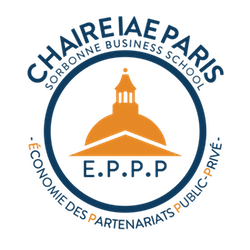May 17, 2019 Edition Paris Workshop on Strategic Management

Paris Workshop on Strategic Management
Organized by:
ESCP Europe, University Paris-Dauphine and Sorbonne Business School
May 17th, 2019
IAE de Paris Sorbonne Business School
11 rue Watt, 75013 Paris. Auditorium – 4th floor.
The first edition of this research Workshop on Strategic Management was held in 2017 at ESCP Europe.
The second edition was jointly organized by ESCP Europe, University Paris-Dauphine, and Sorbonne Business School, and was held at University Paris-Dauphine.
This third edition will take place at IAE de Paris, Sorbonne Business School.
Registration is free but mandatory. Click here to register.
Places are limited.
9:00 – 9:30 am : Registration and Welcome Coffee
9:30 – 9:45 : Welcome Remarks
Stéphane Saussier & Simon Porcher (Sorbonne Business School)
Régis Coeurderoy (ESCP Europe)
Julien Jourdan (University Paris-Dauphine)
Valérie Moatti (ESCP Europe)
9:45 – 11:00 am : SESSION I
Nicolai Foss (U. Bocconi)
« Employees Behaving Badly: How Opportunism Differs Across Hierarchical Forms (and How to Handle It) »
Abstract
While opportunism is a central behavioral assumption in transaction cost economics (TCE), its role in causing hierarchical failure is still unclear. Adding insights from organizational theory and goal-framing theory to TCE, we further the understanding of opportunism in hierarchies by introducing four types of opportunism: 1) financial, 2) status, 3) effort, and 4) visceral opportunism. Moreover, we argue in the first set of propositions that different types of opportunism are more likely under different hierarchical forms (U-form, M-form and project matrix form) because each hierarchal form systematically brings specific common dominant goal frames to the forefront of organizational members’ minds, leading to different types of opportunistic behaviors. In the second set of propositions, we contend that different governance mechanisms need to be deployed to address the different types of opportunism under each hierarchal form.
11:00 – 11:30 am : Coffee Break
11:30 am – 12:45 pm : SESSION II
Magali Delmas (UCLA) with Olivier Gergaud, KEDGE Business School
« Sustainable Practices and Wine Quality: Is There Value in Certification? »
Abstract
More and more wineries are using third-party eco-certification, such as organic or biodynamic certification, to communicate their sustainable practices. At the same time some wineries are adopting sustainable practices without third party certification. In France for example, some wineries self-proclaim themselves “Viticulture Raisonnée” (reasoned viticulture), a flexible approach to sustainability devoid of the rigidity of third party certification. The presence of these different sustainable practices raises the question of their comparative value. While previous research estimates that third party eco-certification leads to increased quality as evaluated by experts, it is unknown whether non-certified sustainable practices are also associated with quality improvements. Evaluating the impact of non-certified sustainability practices on quality is challenging due to the difficulty of identifying such practices. In this paper, we use French data on experts’ quality ratings from Gault Millau, Gilbert Gaillard and Bettane Desseauve, to compare the ratings of self-proclaimed sustainable wines to third party eco-certified wines and conventional wines. A total of 140,690 wines is analyzed. Preliminary findings based on different matching techniques indicate that self-proclaimed sustainable wines are of lower quality than conventional wines, while eco-certified wines are of higher quality than conventional wines. This suggest that non certified practices could be associated with greenwashing.
12:45 – 2:00 pm : Lunch
2:00 – 3:15 pm : SESSION III
Abstract
Platforms and their associated ecosystems are an important organizational form in the digital economy. A significant subset of platform-based ecosystems has at its core a central actor which owns the platform technology and makes decisions that crucially impact its ecosystem members. Such platform leaders are often observed to shift their platform boundaries, but there is no integrated theory as to why they do so and when.
Existing platform theories offer partial insights on platform boundary shifts, as they differ in their focus and level of analysis, focusing either on the scope of the platform-owner firm, or on the technological interface of the platform technology. Others yet focus on the boundaries of the platform-based ecosystems. They also principally draw their insights from two well-established views of organizations: the efficiency view, and the competence view.
3:45 – 5:00 pm : SESSION IV
By Lander M., Roulet T., Van Essen M. & Heugens P.
Abstract
Recent work has shaped the concept of organizational stigma – when an organization is considered as deeply flawed by an audience. Limited research however, has looked at how differences in the focus of the stigmatization and in the targeted attributes affect the reaction of audiences and their attitude towards the stigmatized group of organizations. We empirically explore how different focuses of stigmatization affects the founding of new organizations in a tainted industry and how this is counterbalanced by institutional legacies. Our empirical analysis builds up on a unique dataset of new foundings in the whisky distilleries from 1680 to 1914.
5:00 pm : Final Remarks

